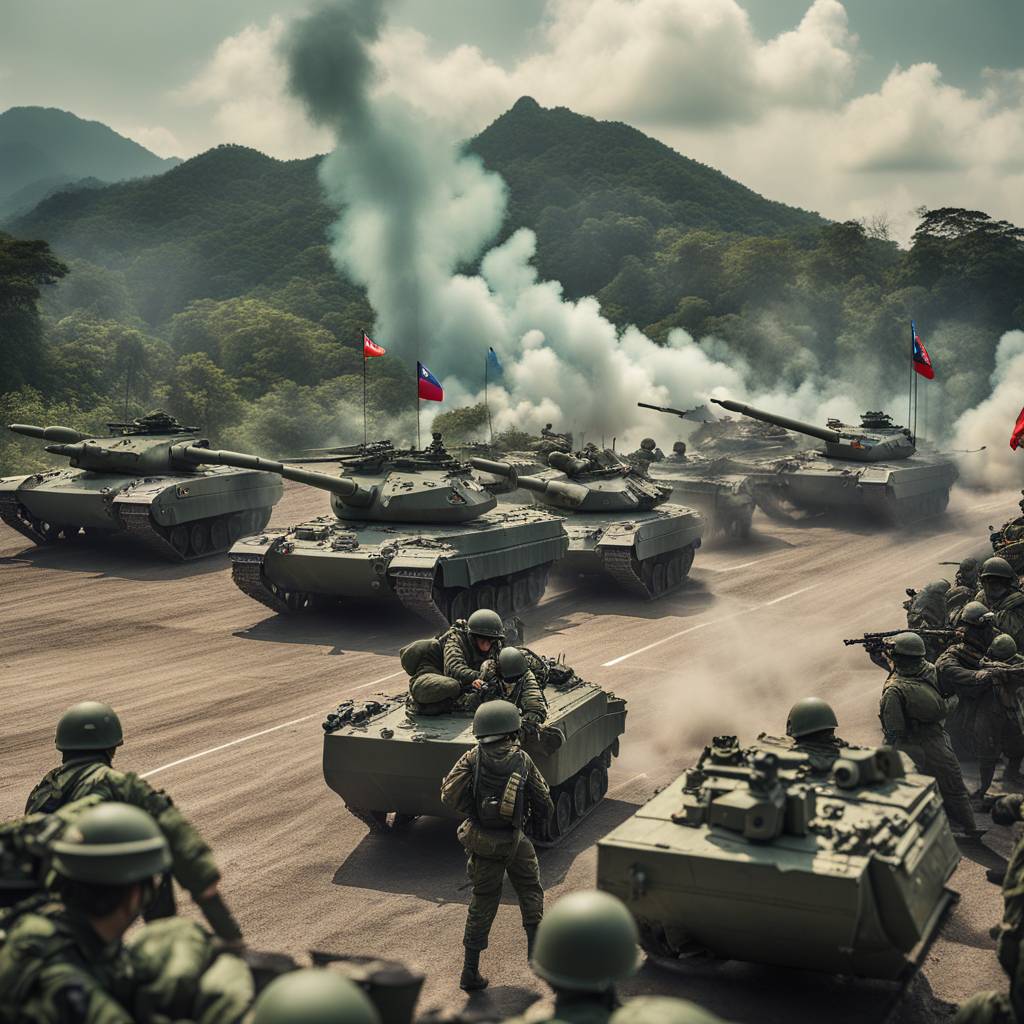Taiwan is planning its annual war game exercises this year with a focus on simulating a scenario where China converts one of its routine military drills around the island into an actual attack. Tung Chih-hsing, head of Taiwan’s defense ministry’s joint combat planning department, announced the incorporation of naval, air, coast guard forces, drones, and shore-mounted anti-ship weapons to establish an “attack and kill chain” at sea. The Han Kuang exercises will kick off in April with eight days of tabletop drills followed by combat exercises in July. Taiwan will also practice joint escort operations using naval and air forces and coast guard ships to respond to a potential blockade by China, which had previously practiced blockading Taiwan during war games last April.
Following a phone call between Chinese President Xi Jinping and President Biden, dozens of Chinese warplanes and multiple naval ships were spotted around Taiwan. Taiwan’s defense ministry reported that it monitored the situation and employed appropriate force to respond to the Chinese military activity. During the phone call on April 2, President Biden emphasized the importance of maintaining peace and stability across the Taiwan Strait, as well as the rule of law and freedom of navigation in the South China Sea. The leaders had a candid and constructive discussion on various bilateral, regional, and global issues, including areas of cooperation and difference. They also reviewed and encouraged progress on key issues like counternarcotics cooperation, military communication, addressing AI-related risks, climate change efforts, and people-to-people exchanges.
The upcoming war game exercises in Taiwan will integrate various military forces to prepare for potential threats from China, including simulating an actual attack stemming from a routine military drill. The exercises will focus on establishing an “attack and kill chain” at sea through the coordination of naval, air, coast guard forces, drones, and shore-mounted anti-ship weapons. Taiwan also plans to practice joint escort operations to respond to a potential blockade by China, building on China’s previous military exercises that involved blockading Taiwan. In response to increased Chinese military presence around Taiwan following a phone call between Xi Jinping and President Biden, Taiwan’s defense ministry monitored the situation and employed measures to respond appropriately.
The phone call between Xi Jinping and President Biden included discussions on maintaining peace and stability in the Taiwan Strait and the rule of law and freedom of navigation in the South China Sea. The leaders engaged in a candid and constructive conversation on various bilateral, regional, and global issues, highlighting areas of cooperation and difference. They reviewed progress on key issues such as counternarcotics cooperation, military communication, addressing AI-related risks, climate change efforts, and people-to-people exchanges. The Chinese military presence around Taiwan following the phone call raised tensions in the region, prompting Taiwan to respond with appropriate measures to monitor and address the situation.
As tensions between Taiwan and China continue to escalate, Taiwan is gearing up for its annual war game exercises to prepare for potential threats from China. The exercises will focus on simulating a scenario where China converts a routine military drill around Taiwan into an actual attack, testing the coordination of various military forces in establishing an “attack and kill chain” at sea. In response to increased Chinese military presence around Taiwan following a phone call between Xi Jinping and President Biden, Taiwan’s defense ministry monitored the situation and took appropriate measures to respond. The leaders’ conversation emphasized maintaining peace and stability in the Taiwan Strait, as well as progress on key issues like counternarcotics cooperation, military communication, AI-related risks, climate change efforts, and people-to-people exchanges.













